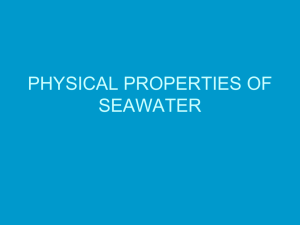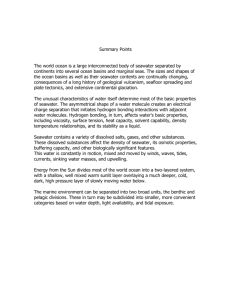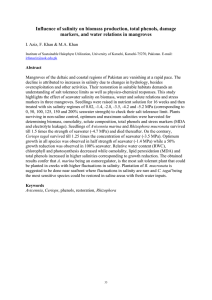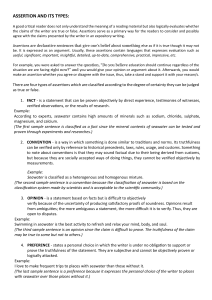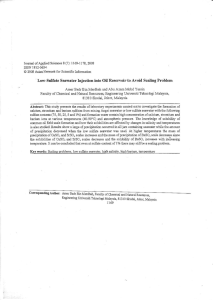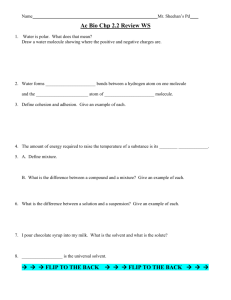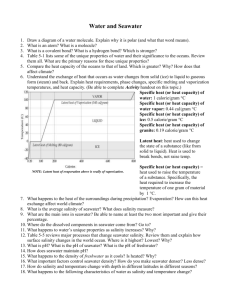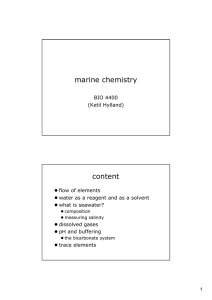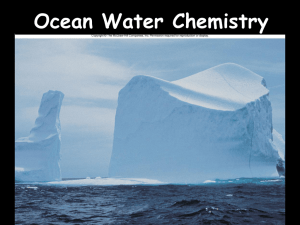Properties of Water
advertisement
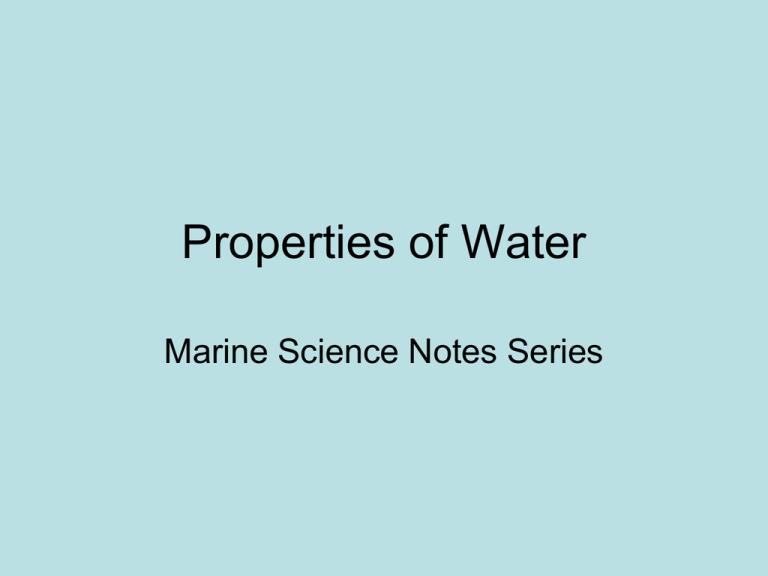
Properties of Water Marine Science Notes Series Water Molecule and Bonding Forces I. London Forces: Intramolecular a) Covalent Bonds: sharing of electrons between Hydrogen and Oxygen b) Van der Waals – forces within the water molecule c) Hydrogen Bonds – keeping a network of water molecules together (~105 0 angle) Energy & Water • Heat Values are measured in calories and joules. a) a calorie is the amount of heat energy needed to raise the temperature of 1 gram of water by 10C This is sometimes called specific heat b) There are energy values when water changes state from a solid to a liquid to a gas (Latent Heat of… Fusion and of Vaporization) c) Temperature is an indirect function of heat energy F= 9/5 C + 32 C = 5/9 (F – 32) Specific Heat of Salt Water? • We will calculate the specific heat of salt water, but will see how accurate we are by determining the specific heat of a known metal Heat Loss or Gain = m (Cp) T Cp = Specific Heat Special Properties of Water a) Water can break salts down into ions (which are charged particles) Cations are positive ions Anions are negative ions b) Cohesion – This holds a water molecule together as a “body” c) Adhesion – the ability of water to bond with other molecules d) Viscosity – the ability of a liquid to flow e) Density – varies with temperature* Seawater • The density of seawater at 4 oC is approximately 1.0278 g/cm3 • The freezing point of seawater is -1.33 oC • Open ocean water has a salinity of 35 g/kg Eleven Major Constituents • • • • • Chloride Sulfate Bromide Bicarbonate Fluoride • • • • • • Residence Time of Chloride is 80 million years Residence Time of Sodium is 60 million years Boron Strontium Calcium Potassium Magnesium Sodium Light and Seawater • Visible light ranges from 350 to 720 nm as part of an electromagnetic light visibl emission -In the first 1 meter – 60% of light is absorbed -In the first 11 meters, 80% of light is absorbed -Below 1000 m, no light penetrates Attenuation Nature Reviews Microbiology 2007 Gases in water • Solubility is determined by – Temperature – Salinity – Density It is measured in mg/L or ppm. The understood gases are Oxygen and Carbon dioxide
